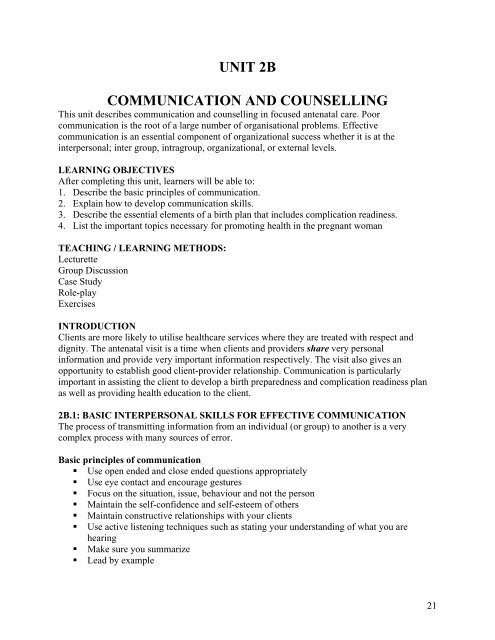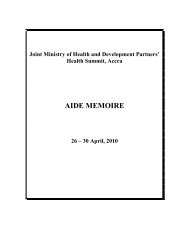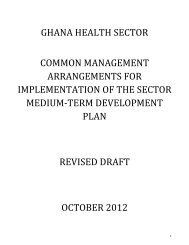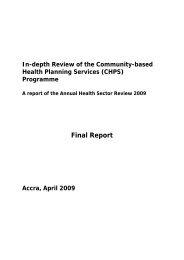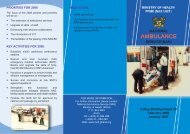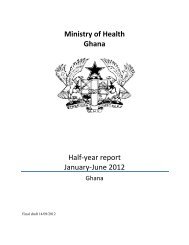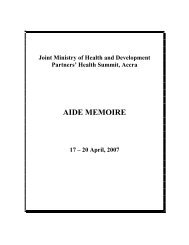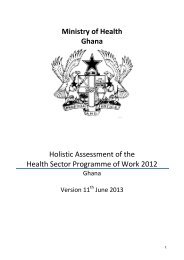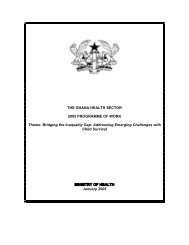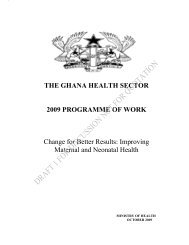Training Manual for Preventive Malaria - Ministry of Health
Training Manual for Preventive Malaria - Ministry of Health
Training Manual for Preventive Malaria - Ministry of Health
You also want an ePaper? Increase the reach of your titles
YUMPU automatically turns print PDFs into web optimized ePapers that Google loves.
UNIT 2B<br />
COMMUNICATION AND COUNSELLING<br />
This unit describes communication and counselling in focused antenatal care. Poor<br />
communication is the root <strong>of</strong> a large number <strong>of</strong> organisational problems. Effective<br />
communication is an essential component <strong>of</strong> organizational success whether it is at the<br />
interpersonal; inter group, intragroup, organizational, or external levels.<br />
LEARNING OBJECTIVES<br />
After completing this unit, learners will be able to:<br />
1. Describe the basic principles <strong>of</strong> communication.<br />
2. Explain how to develop communication skills.<br />
3. Describe the essential elements <strong>of</strong> a birth plan that includes complication readiness.<br />
4. List the important topics necessary <strong>for</strong> promoting health in the pregnant woman<br />
TEACHING / LEARNING METHODS:<br />
Lecturette<br />
Group Discussion<br />
Case Study<br />
Role-play<br />
Exercises<br />
INTRODUCTION<br />
Clients are more likely to utilise healthcare services where they are treated with respect and<br />
dignity. The antenatal visit is a time when clients and providers share very personal<br />
in<strong>for</strong>mation and provide very important in<strong>for</strong>mation respectively. The visit also gives an<br />
opportunity to establish good client-provider relationship. Communication is particularly<br />
important in assisting the client to develop a birth preparedness and complication readiness plan<br />
as well as providing health education to the client.<br />
2B.1: BASIC INTERPERSONAL SKILLS FOR EFFECTIVE COMMUNICATION<br />
The process <strong>of</strong> transmitting in<strong>for</strong>mation from an individual (or group) to another is a very<br />
complex process with many sources <strong>of</strong> error.<br />
Basic principles <strong>of</strong> communication<br />
• Use open ended and close ended questions appropriately<br />
• Use eye contact and encourage gestures<br />
• Focus on the situation, issue, behaviour and not the person<br />
• Maintain the self-confidence and self-esteem <strong>of</strong> others<br />
• Maintain constructive relationships with your clients<br />
• Use active listening techniques such as stating your understanding <strong>of</strong> what you are<br />
hearing<br />
• Make sure you summarize<br />
• Lead by example<br />
21


